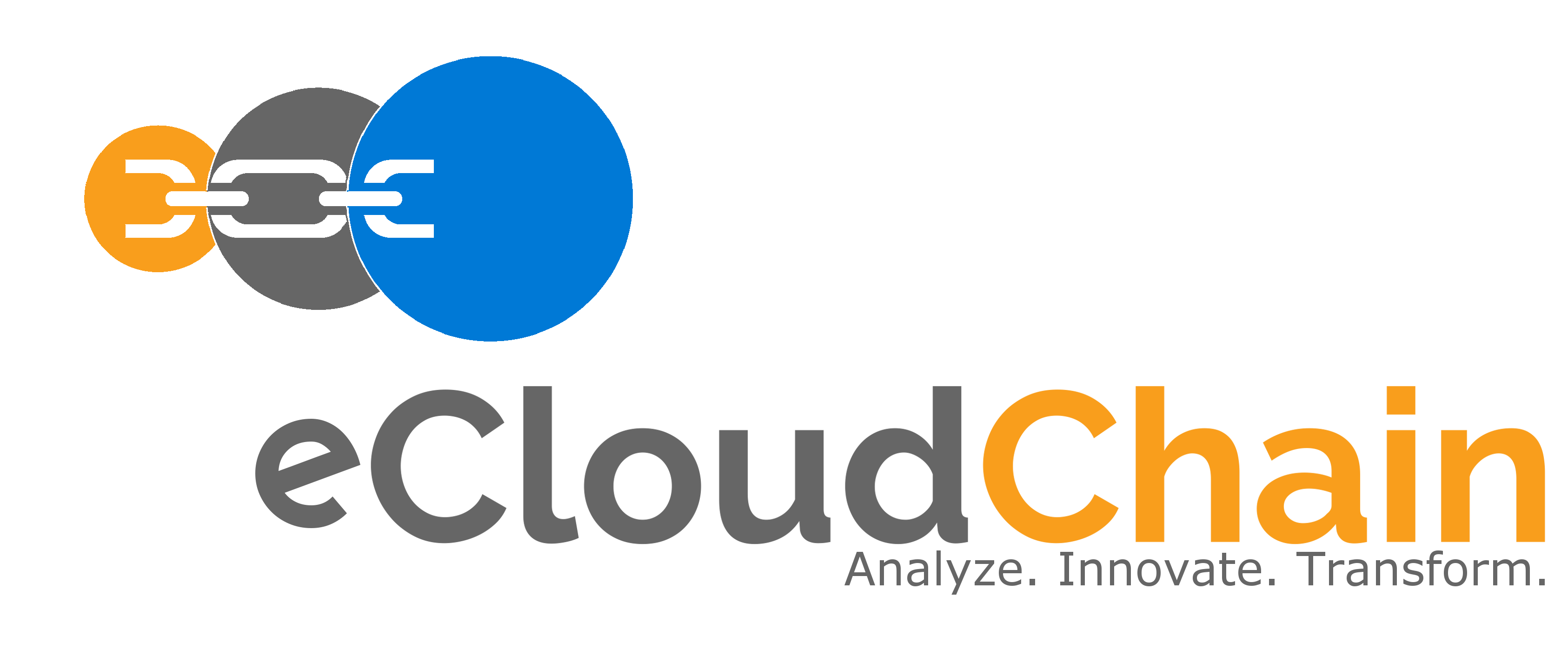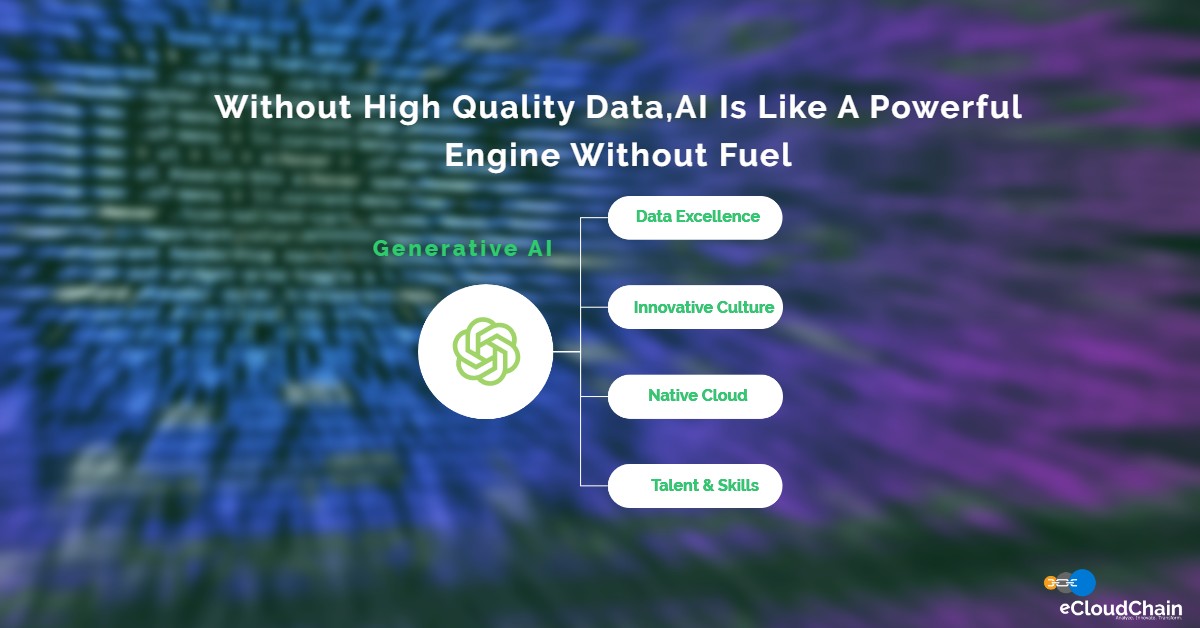
Generative AI Strategies: How To Maximize Your Business Opportunities
No AI strategy can thrive or endure without high-quality data because data is the lifeblood that fuels generative AI…
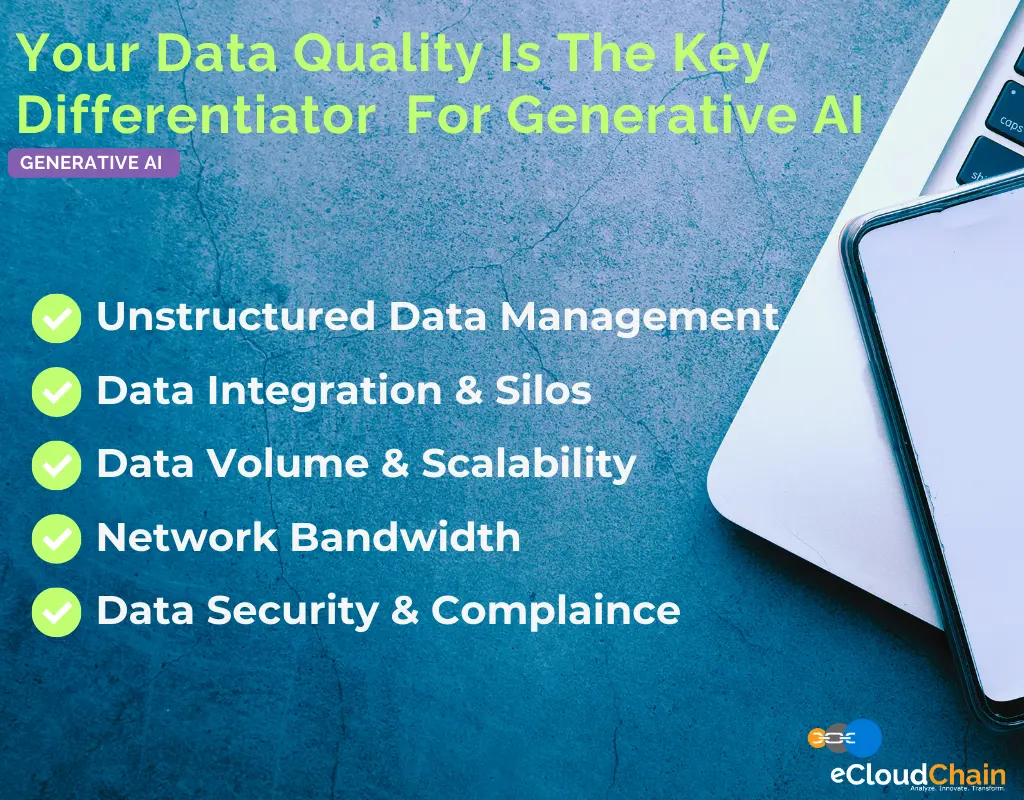
In the era of generative AI, data management emerges as a cornerstone for enterprises striving for success.
The ability to harness the full potential of generative AI hinges on mastering data management—transforming it from unstructured information into actionable insights that fuel innovation and drive business growth. Enterprises must navigate the complexities of data management to empower their AI capabilities fully. However, it’s not merely about having data; it’s about ensuring that data is reliable, available, and accessible when needed most.
To overcome the challenges of data management, enterprises leverage the power of cloud managed services which provides a variety of solutions like the infrastructure services, scalability, and security needed to handle vast volumes of data efficiently. Cloud MSPs offer robust data storage solutions, data processing capabilities, and data governance frameworks that ensure data quality and integrity. By leveraging managed services, enterprises can streamline data management processes, reduce operational complexities, and accelerate their path toward generative AI success.
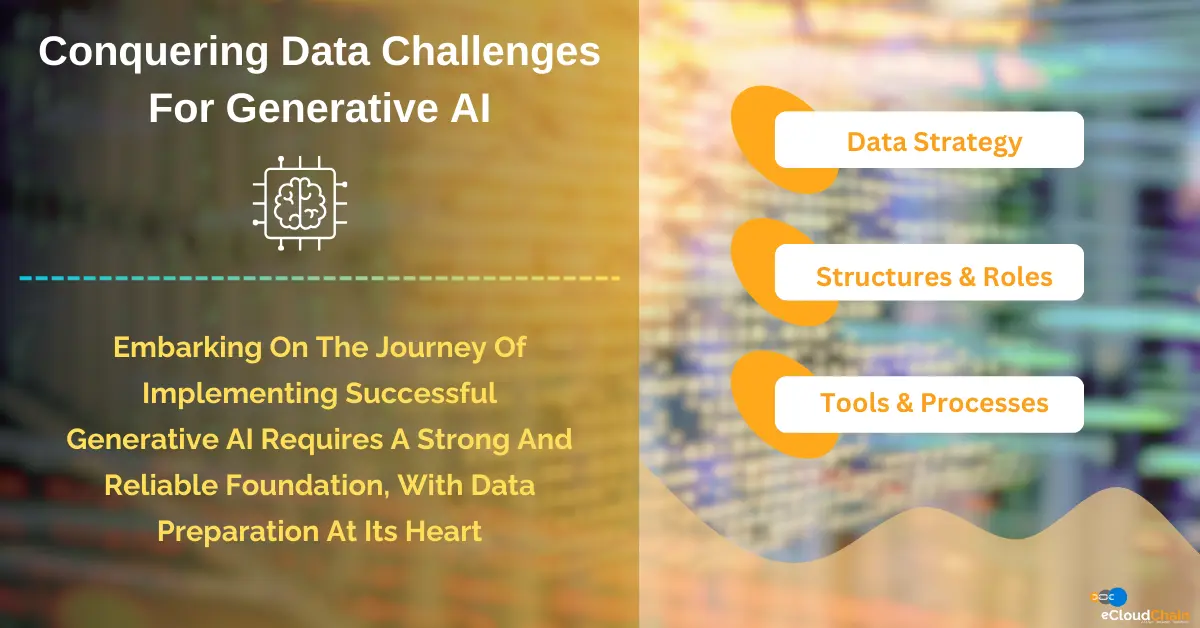
Your data is much more than just information; it’s a valuable asset that holds the key to your intellectual property. In various industries, businesses gather and accumulate vast amounts of data throughout their operations. This wealth of data can be a hidden treasure trove, providing invaluable real-time insights. However, to fully unlock its potential, you must properly prepare your data for AI implementation.
One of the key data challenges in the generative AI journey is data literacy, Most of the managers and employees in the organization lack data literacy. Gartner defines data literacy “as the ability to read, write and communicate data in context to describe the use case, application, and resulting value.”
Poor data literacy is ranked as the second-biggest roadblock to the success of the CDO’s office, according to the Gartner Annual Chief Data Officer Survey.
Every organization has to navigate a few of the critical data challenges in the generative AI journey:
Unstructured data can be quite chaotic and disorganized. It shows up in various formats, making it difficult to analyze effectively. Getting this data ready for action, requires meticulous cleaning, categorizing, and transforming it into a format that machines can easily understand.
Neglecting these crucial steps will cause AI models to stumble when trying to analyze or make predictions based on unstructured data. This could result in less-than-ideal outcomes and even provide misleading or biased insights.
Data integration is a critical challenge in organizations aiming to prepare their data for AI. It skillfully merges data from multiple sources, which may have different formats, structures, and storage systems. This challenge arises due to the diverse nature of data generated and utilized across different departments, applications, and external platforms within an organization.
The ever-growing challenge of managing data volume and scalability when preparing data for AI lies in the vast amounts of data that organizations generate and need to handle.
As the scale of data continues to expand, organizations face numerous hurdles such as dealing with large datasets, optimizing network bandwidth, and ensuring efficient storage infrastructure.
With business growth and an expanding customer base, the volume of data generated increases exponentially. To keep up with this growth without sacrificing performance, scalable data solutions must be flexible and adaptable.
When it comes to preparing data for AI, the smooth transfer of information is absolutely essential. Having a higher bandwidth allows for quick and seamless movement of data between different systems, applications, and storage platforms.
When dealing with AI, datasets can be massive, ranging from several terabytes to even petabytes in size. By having an efficient network bandwidth in place, we can ensure that these large datasets are able to flow smoothly across the network without any bottlenecks or unnecessary delays, which ultimately supports timely and efficient data processing.
Embarking on the journey of implementing successful Generative AI requires a strong and reliable foundation, with data preparation at its heart.
In an organization filled with an abundance of data, the importance of careful data preparation cannot be emphasized enough. It serves as the cornerstone, tackling challenges directly and creating opportunities for effective utilization of Gen AI. As we explore the details of data readiness, it becomes increasingly evident how it can unlock innovation and drive meaningful results for organizations.
To create a solid foundation for your data, there are broadly four key dimensions that need to be considered.
To conquer the data challenges and meet the requirements of generative AI, organizations can implement a strategic approach starting with the creation of a centralized data lake.
A Data Lake serves as a repository for all types of data, providing the organization with the ability to access meaningful data easily when needed. This data is crucial for training Language Model Models (LLMs) for generative AI applications.
Leveraging expert Cloud Managed Service Providers (MSPs) can aid in building a modern data lake architecture that ensures data security, cleanliness, and readiness for analysis using cloud services. With a well-designed data lake and support from cloud MSPs, organizations can efficiently manage their data and harness its full potential for generative AI advancements.
Conquering data management challenges can also be achieved by implementing robust data governance practices after storing data in a centralized location such as a data lake.
Data governance is not a one-time effort but a continuous process that involves creating and enforcing policies and procedures to manage data security, integrity, and responsible data utility. It defines the organization’s data management strategy, determines who can access what data, and establishes accountability in data usage.
Effective data governance policies also play a crucial role in reducing the risk of regulatory fines or actions by ensuring compliance with data protection regulations and standards. Employee training is another essential aspect to focus on, as it helps ensure that teams adhere to data governance policies and laws related to data handling and privacy.
Engaging a cloud managed service provider(MSP) can further assist organizations in addressing key data management challenges. MSPs offer expertise in implementing and maintaining data governance frameworks, ensuring data security, and providing scalable solutions for data management in the cloud environment. Collaborating with a managed service provider can significantly enhance an organization’s ability to conquer data management challenges effectively.
Another crucial aspect of conquering data management challenges is ensuring effective data distribution and consistency.
Organizations often need to distribute data to various endpoints such as operational systems, data lakes, and data warehouses, ensuring that the data is readily available where it’s needed. This is especially important to address network latency issues, ensuring timely access to data for operational purposes. Storing copies of data locally can help mitigate network latency concerns and ensure data availability.
Data warehouses and data lakes consolidate data from various sources to present a unified view of information. Data warehouses are typically used for analytics and decision-making, while data lakes serve as a consolidated hub from which data can be extracted for various use cases.
Cloud managed services providers play a crucial role in building and optimizing data distribution mechanisms, helping organizations manage data efficiently across various endpoints while ensuring consistency and reliability.
With our AI-readiness services, we help organizations unlock the power of generative AI by developing a comprehensive data strategy that aligns with ethical principles and business objectives. Our experienced team will work with you to craft an innovative solution that optimizes your investments in AI while ensuring scalability and performance optimization.
We Offer end-to-end AI solutions encompassing machine learning, natural language processing, and computer vision. Provide tailored AI models and algorithms to meet diverse client needs across industries.
We provide expertise in data management, including data migration, building data lakes, and data governance. Our services for data storage, retrieval, and data analysis have a robust and well-managed data foundation for your organization
We provide scalable and flexible cloud infrastructure managed services to accommodate the growing demands of AI and data processing. We offer cloud services for seamless scalability, allowing clients to adapt to changing business requirements.
We build and deliver advanced analytics services to extract meaningful insights from data. Utilize predictive modeling, data visualization, and other analytics tools to empower clients with actionable intelligence for informed decision-making.
We help you implement robust security measures, encryption, and compliance frameworks to ensure the confidentiality and integrity of client data, building trust in the managed services portfolio.
We build strategic partnerships with our customers to transform their businesses by providing cutting-edge cloud computing services… Know More...

No AI strategy can thrive or endure without high-quality data because data is the lifeblood that fuels generative AI…
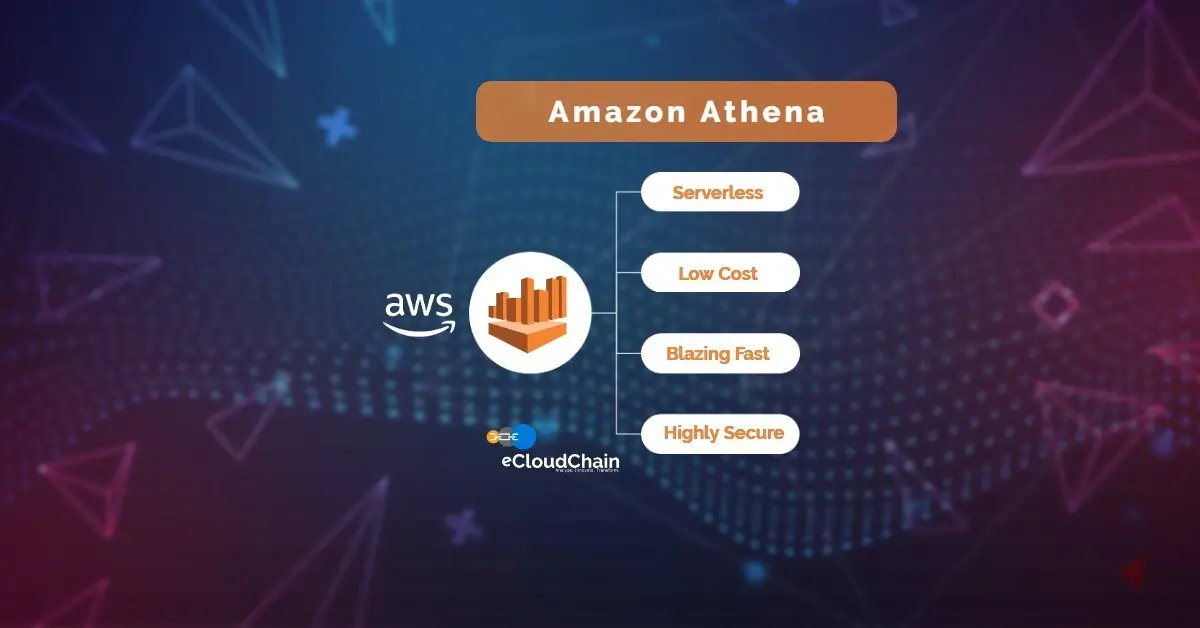
Amazon Athena lets you query data where it lives without moving, loading, or migrating it. You can query the data from relational, non-relational…
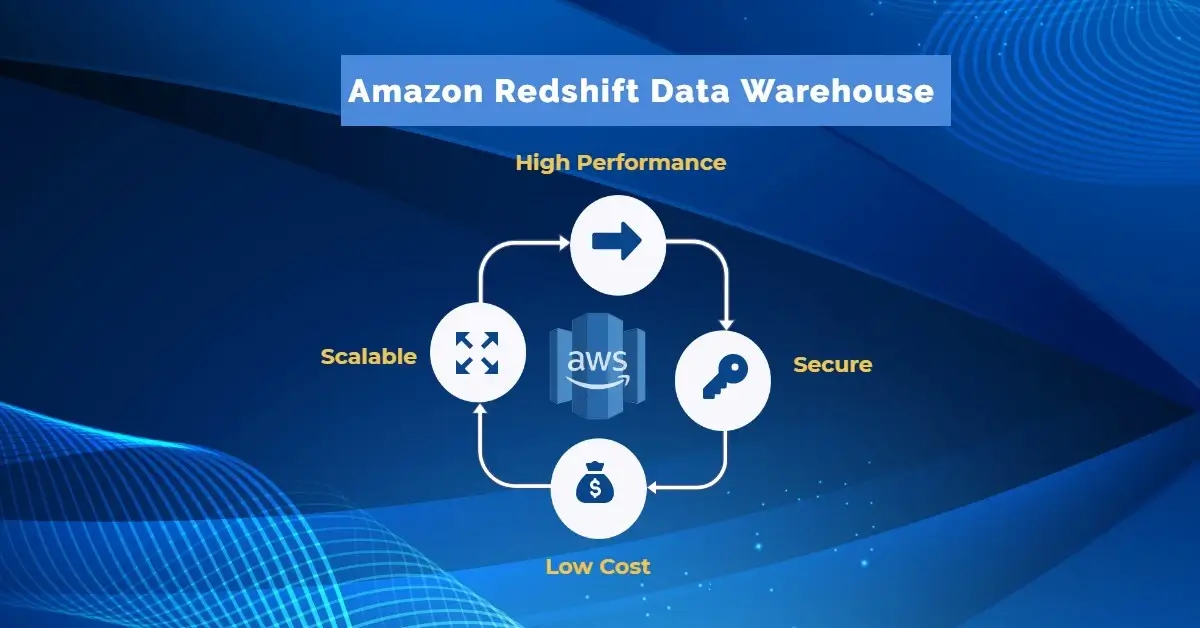
Amazon Redshift is a cloud-based next-generation data warehouse solution that enables real-time analytics for operational databases, data lakes….
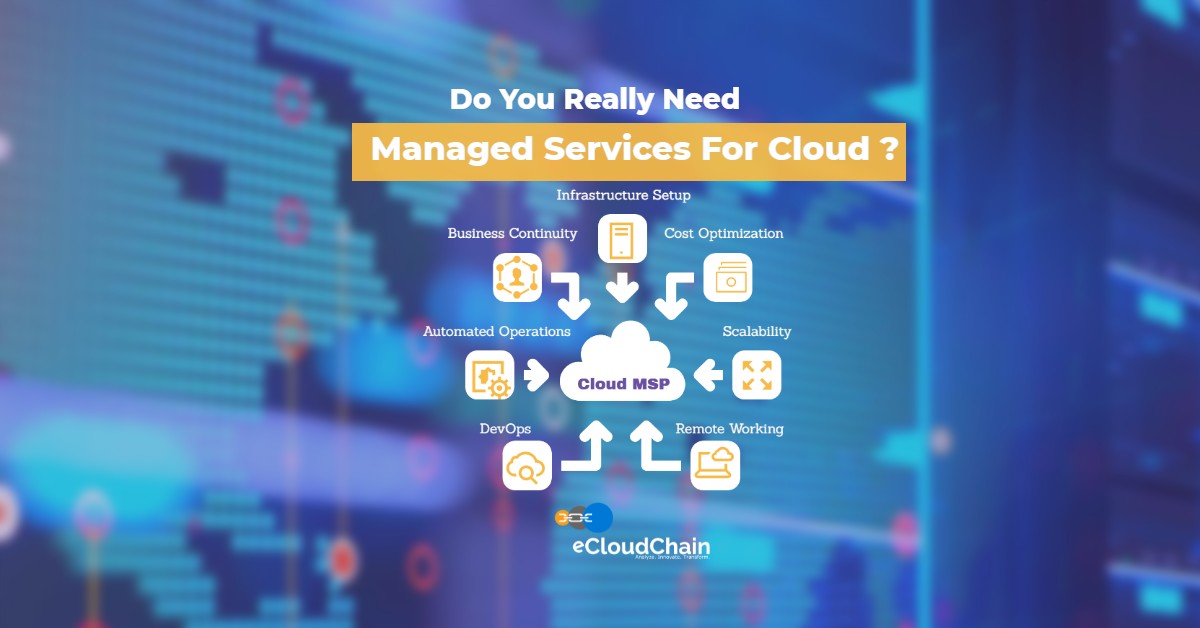
Cloud Managed Services Provider (MSP) allow your businesses to leverage the power of cloud without the pain of becoming an expert in it…
Navigating New Horizons With Gen AI Stay At The Forefront of AI-driven Innovation We excel in developing custom generative AI applications that seamlessly integrate with
Cloud Cost Optimization Have A Greater Control Over Your IT Spending A well-defined Cloud Cost Optimization Strategy can help you to implement the cloud best
Data Lake Solutions Establish a Central Data Lake for Your Data Management Needs Unlock the full potential of your data by leveraging our comprehensive data
Accelerate your Digital Transformation Find The Right Way Forward with Cloud Proof of Concepts(POC) Rapid Solution Prototyping Allows You To Minimize Any Unforeseen Risks and
